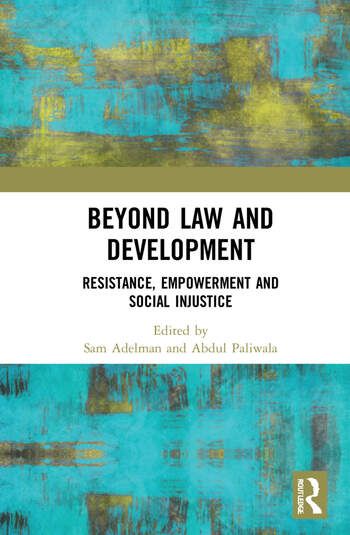
In a legal context, and primarily in relation to the now well-established field of ‘law and development’, this book takes up the need to think beyond development in order to address the global social injustices that inform the key problems facing the global South. These injustices comprise interconnected phenomena including impoverishment, displacement, post-coloniality, cultural and social exclusion, warfare and terrorism, climate injustice, ineffective governance, gender injustice, and the underlying structural injustices of the global economic system. And here, the contributors to this book take up the challenge of exploring new, alternative epistemologies that might provide effective alternatives to neoliberal globalisation: including feminist concepts of relationality, Islamic approaches, the role of the state, human rights discourses; and the nature and role of forms of resistance. The book thus explores whether it is possible to address social injustices in the global South in ways that avoid perpetuating problems – such as skewed growth, extractivism and inequality – associated with the concept of development.